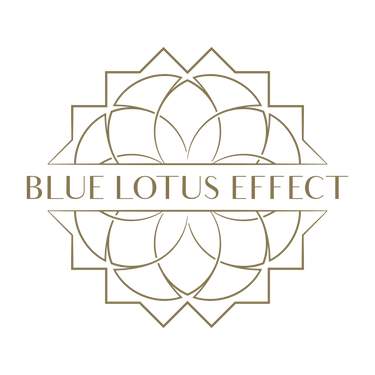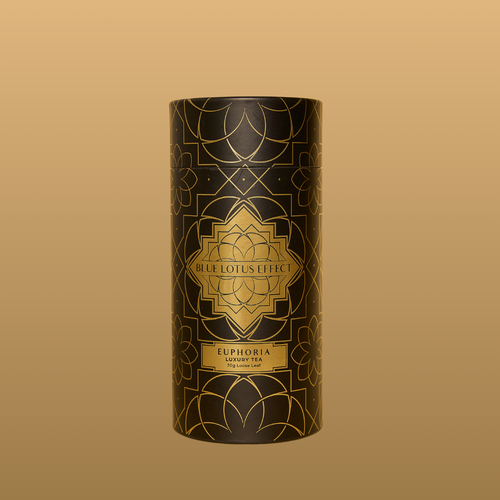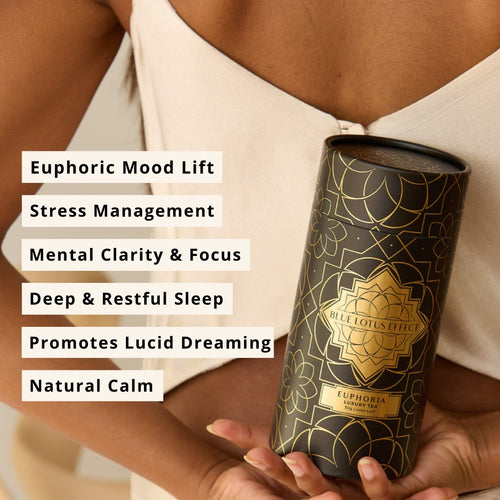Blue Lotus Tea: The Ancient Elixir Wrapped in Modern Controversy
The world of botanical wonders is vast and profound, filled with nature's secrets waiting to be unveiled. Among these marvels, one stands out both for its historical significance and its modern-day intrigue: the Blue Lotus.
For centuries, the Blue Lotus flower, scientifically known as Nymphaea caerulea, was the star of ancient Egyptian ceremonies. Revered for its captivating beauty and intoxicating aroma, it was not just a symbol of purity and rebirth, but also a key ingredient in various spiritual and medicinal concoctions. So, what led to its controversial status today? And why, despite the ban in some countries, is it still sought after by many?
A Glimpse into the Past:
The hieroglyphics adorning the walls of ancient Egyptian tombs often depict the Blue Lotus. Pharaohs and spiritual leaders were often pictured with the flower, symbolizing their connection to the divine. But beyond its ornamental value, the Blue Lotus was known for its sedative and euphoric effects. Priests and shamans consumed it in the form of tea or wine to enhance their meditative practices, believing it to provide heightened awareness and a deeper connection to the gods.
Modern Controversy:
The very effects that made Blue Lotus a cherished treasure in ancient times are what place it under scrutiny today. Some countries have banned or restricted its sale, fearing its potent properties. These nations argue that when consumed in high doses, Blue Lotus can lead to mild hallucinations or a state of dreamy euphoria. They believe these effects can be misused, thus the need for regulation.
However, it's essential to differentiate between misuse and beneficial use. Just as with any substance, moderation and understanding are key.
Unlocking the Benefits:
- Relaxation & Stress Relief: Blue Lotus tea has natural sedative properties. When consumed in moderation, it can lead to a state of calm relaxation, making it perfect for unwinding after a stressful day.
- Enhanced Meditation: Just as the ancient Egyptians believed, many modern-day spiritual practitioners find that Blue Lotus aids in deepening their meditative states, allowing for a more profound spiritual experience.
- Natural Aphrodisiac: Historically, the Blue Lotus was also considered an aphrodisiac. While research is still ongoing, many users vouch for its ability to enhance intimacy.
- Antioxidant Properties: Like many teas, Blue Lotus is rich in antioxidants, which are known to combat free radicals in the body, promoting overall health.
Why You Should Consider Blue Lotus Tea:
In a world that often leans towards synthetic solutions, there's an undeniable charm in turning to nature's bounty for our well-being. Blue Lotus tea offers a blend of relaxation, spiritual enhancement, and health benefits, making it a holistic solution for modern-day challenges.
Moreover, while it's essential to respect and understand the laws of each country, it's equally crucial to be informed. Many of the concerns surrounding Blue Lotus arise from misinformation or overconsumption. When consumed responsibly and in moderation, Blue Lotus tea can be a safe and beneficial addition to one's wellness regimen.
Conclusion:
Blue Lotus tea is not just a beverage; it's an experience — a bridge between the ancient world and modern times. If you're seeking a natural way to relax, enhance your spiritual practices, or simply enjoy a cup of history, this might just be the brew for you.
In the end, the choice is yours. But remember, every sip of Blue Lotus tea is a toast to a time when nature and divinity intertwined, and humans reveled in the simple yet profound joys of life. Why not experience that magic today? Order your Blue Lotus tea and embark on a journey through time and sensation.






